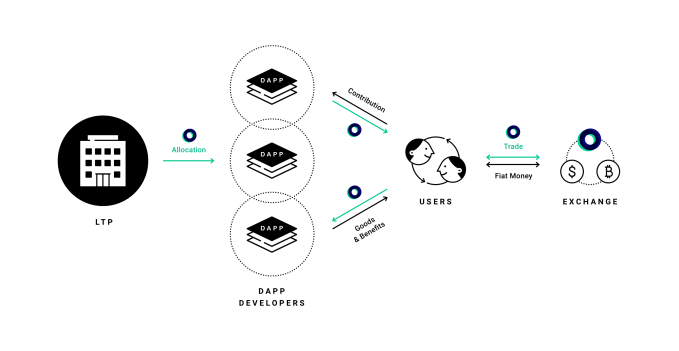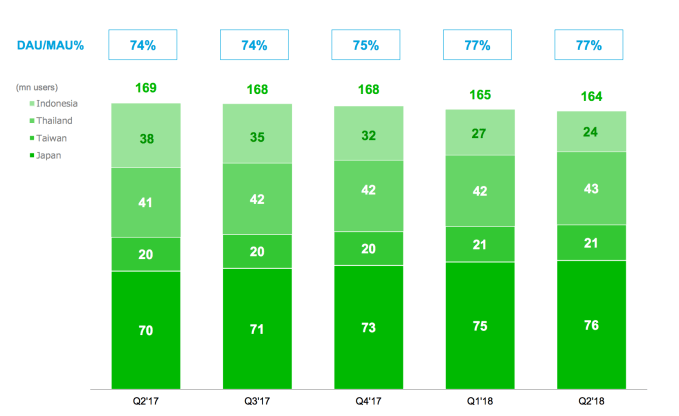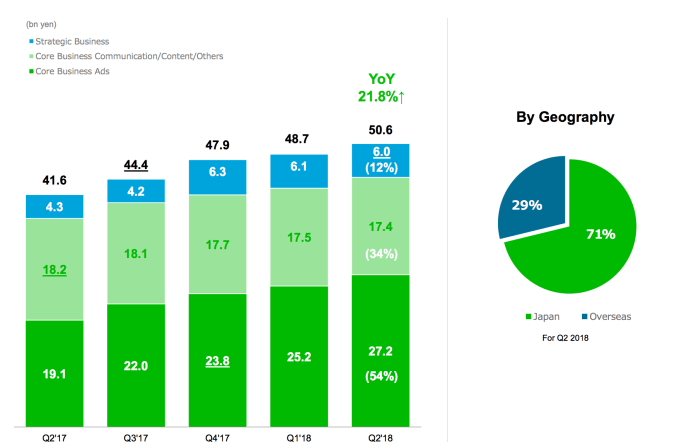Line, the Japanese messaging app firm that’s best known for its cutesy characters and stickers, is pushing deeper into crypto after it launched its own token to help grow its stagnant user base.
Line went public two years ago with 218 million monthly active users, but it hasn’t been able to kick on. The company no longer gives out its worldwide user number, but the number of active users in its four biggest markets has fallen from 169 million in Q2 2017 to 164 million in its recent Q2 2018 period.
Link — Line’s token — isn’t being minted through an ICO, instead, it’ll be given out to Line users as an incentive for using certain services. Line hasn’t said exactly how it can be earned yet, although it is likely that it’ll be tied to specific activities to promote engagement.

The token will be listed on Bitbox — Line’s crypto exchange — and it’ll be used it to buy content like stickers and webcomics, as well as other Line services. It’ll also be possible to use Link to get a lower commission rate on trading in the same way that Binance, the world’s largest exchange, uses its BNB token.
Line currently has a virtual currency for its in-app content and services, and you’d imagine that Link will replace it in the future.
It’s worth noting, however, that Link hasn’t launched in Japan yet. That’s because Line is awaiting regulatory approval for its token and exchange, so, for now, those in Japan — which is Line’s largest market — will earn virtual tokens which can be traded for Link in the future.

Link will launch next month, and it follows the announcement of BitBox in July and the launch of a dedicated crypto fund in early August.
Line has dodged the legal questions around token sales by not holding an ICO, and the fact it is using the currency to incentivize user engagement and activity isn’t a huge surprise. Line went public in a dual U.S-Japan IPO that raised over $1 billion in 2016 but, despite user numbers declining, it has grown its revenue through additional services.
Increased competition from the likes of Facebook Messenger and WhatsApp is likely its biggest threat, so incentivizing users is a logical strategy. Of course, that depends on how useful Link becomes. If users can exchange it for a decent amount of cash or credits inside Line’s platform it may gain appeal, but if they just pick up trivial amounts, it may be less interesting to them. The bigger picture will be when Link replaces Line’s virtual currency for all purchases but that alone isn’t likely to boost user engagement.

Line also plans to use Link — and the blockchain it has developed to power it — to host decentralized applications (dapps) that will connect to its messaging platform. The company already does a lot more than messaging — for example payments, ride-hailing, music and videos — and it plans to tap third-party developers to build dapps. Generally, though, dapps haven’t taken off. The collectibles game Cryptokitties did blow up late last year, but studies have suggested user activity is massively down this year as the fad has slowly worn off.
Crypto enthusiasts will no doubt take positives from Line’s latest move — it is arguably the largest company to embrace crypto, in terms of end-user audience reach — but it remains to be seen whether Link and its dapps platform can help it crack its user growth and retention issues.
“Over the last seven years, Line was able to grow into a global service because of our users, and now with Link, we wanted to build a user-friendly reward system that gives back to our users. With Link, we would like to continue developing as a user participation-based platform, one that rewards and shares added value through the introduction of easy-to-use dapps for people’s daily lives,” said Line CEO Takeshi Idezawa in a statement.
Unlike Bitcoin, which is mined, Line has minted a total of one billion Link tokens which it said will be “gradually issued according to how this ecosystem develops.” The company plans to keep 200 million tokens, with the remaining 800 million made available as user rewards.
Note: The author owns a small amount of cryptocurrency. Enough to gain an understanding, not enough to change a life.































Comment